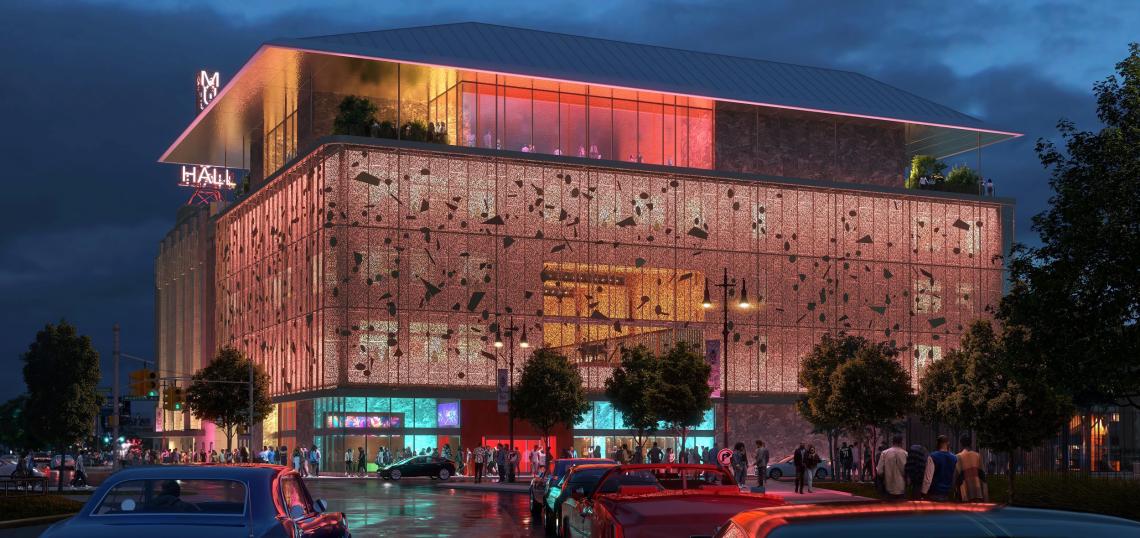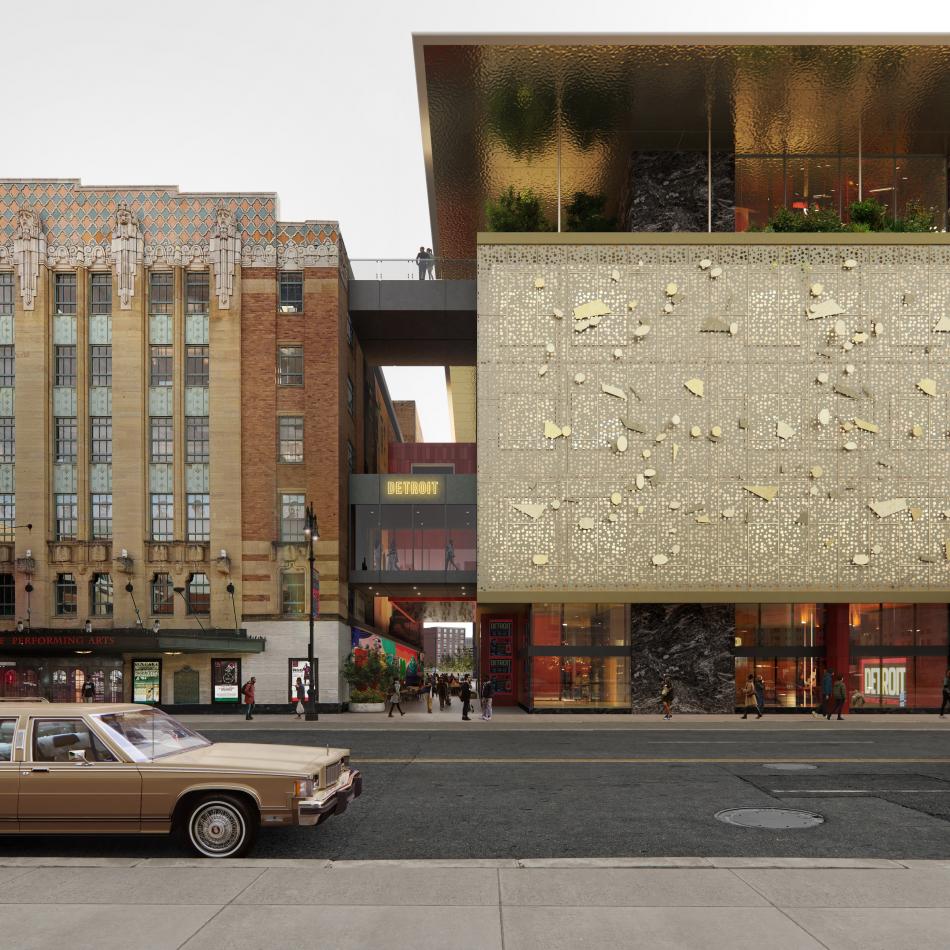Last month, we learned that Detroit Music Hall will build a 100,000-square-foot, seven story expansion on an empty lot next to its current building. Today, we have more details to share about its design, use, and budget.
The $122 million project will include a new 1,900-seat concert hall, a 200-seat recital hall, recording and practice studios, leasable office space, a rooftop restaurant, a music academy, and a public welcome center with box office access to arts events across Detroit.
The most striking design feature of the new building is the a perforated metallic screen across the exterior. The screen will have metal accents and different textures, with low LED lights adding color to the building at night (as in the photo above).
Walkways will connect the two buildings over an activated alley. The alley will have seating, performance space, and art installations.
"The expansion will welcome the world to Detroit," said Vince Paul, President and Artistic Director of Detroit Music Hall. "Through this new development, we honor our musical legends and create opportunity for the music legends of tomorrow. This portal to the people not only engages our community, but will encourage tourists from all over the world to visit and celebrate their musical heroes.”
The design is led by Tod Williams Billie Tsien Architects, who have also worked on the David Geffen Hall at Lincoln Center and the Obama Presidential Center.
"The experience of growing up in and around Detroit has followed and influenced me throughout my life and career”, says Tod Williams, Founding Partner / Tod Williams Billie Tsien Architects. “It is a tremendous gift for our studio and team to work with Vince Paul, the Music Hall staff, Board, and our excellent contractor Barton Malow, among many others, on this once-in-a-lifetime project at the heart of downtown's cultural corridor. By doubling its capacity and amplifying its activity and offerings, Music Hall will be an unparalleled destination and a spectacular asset for Detroit’s future."
$80 million in funding will come from tax-exempt 501(c)3 bonds, issued by the Economic Development Corp., a part of the Detroit Economic Growth Corp. The development is expected to break ground next year and open in fall of 2026.








